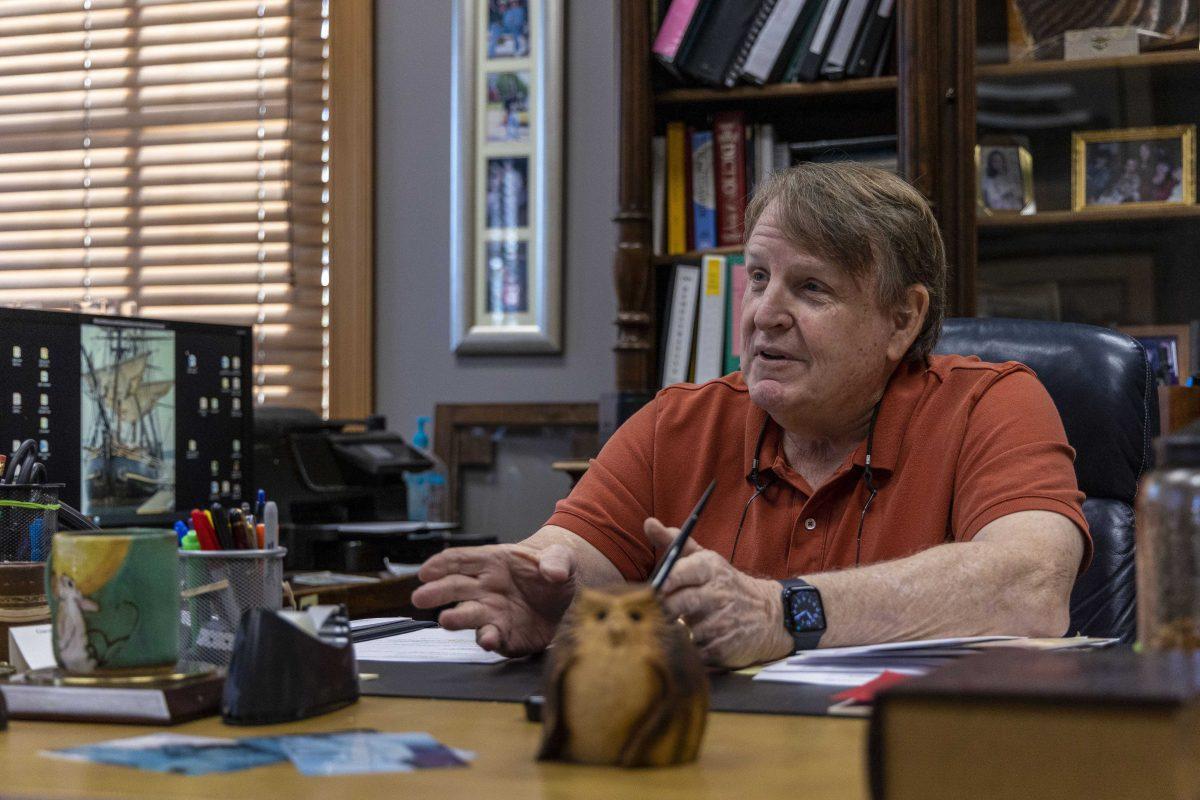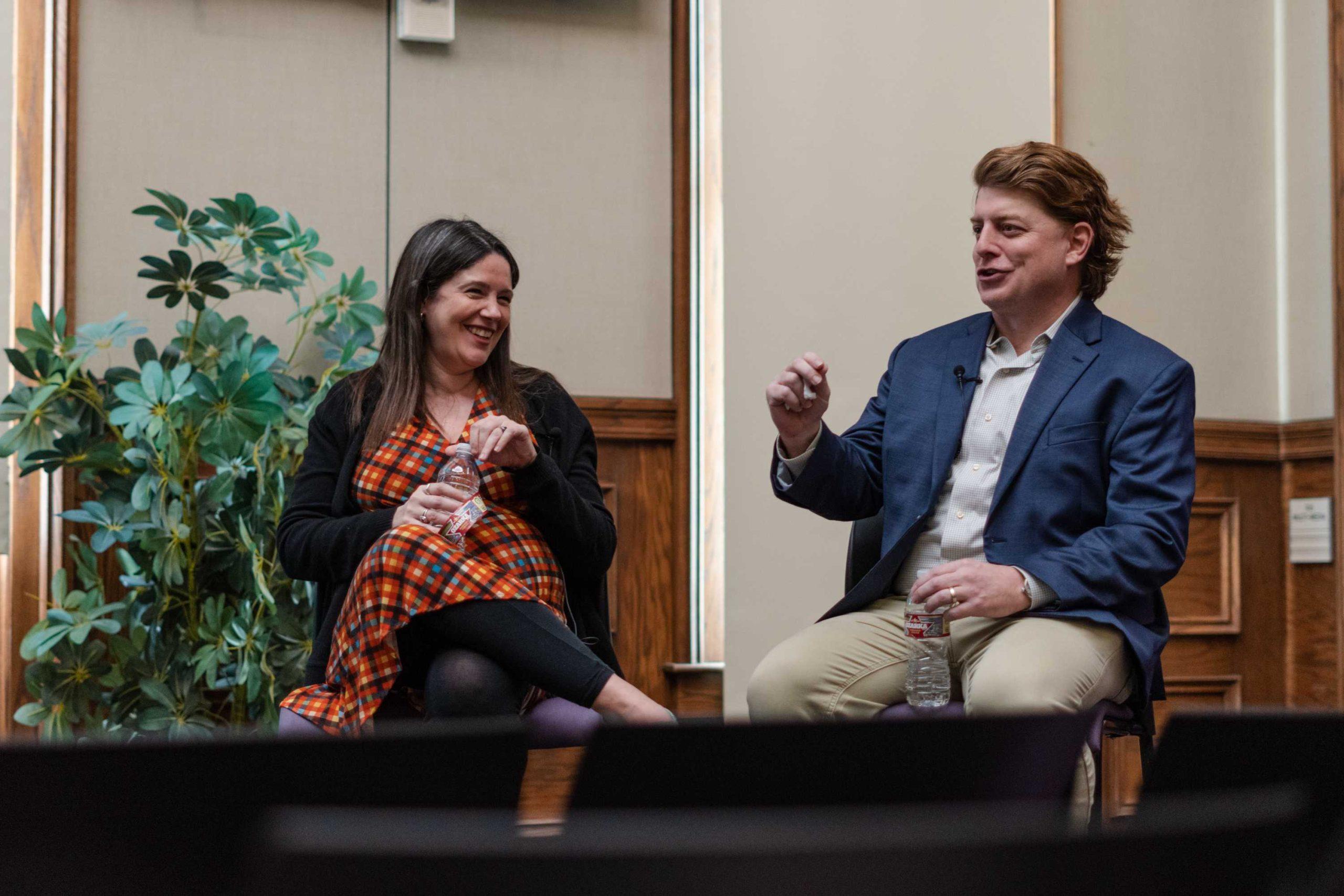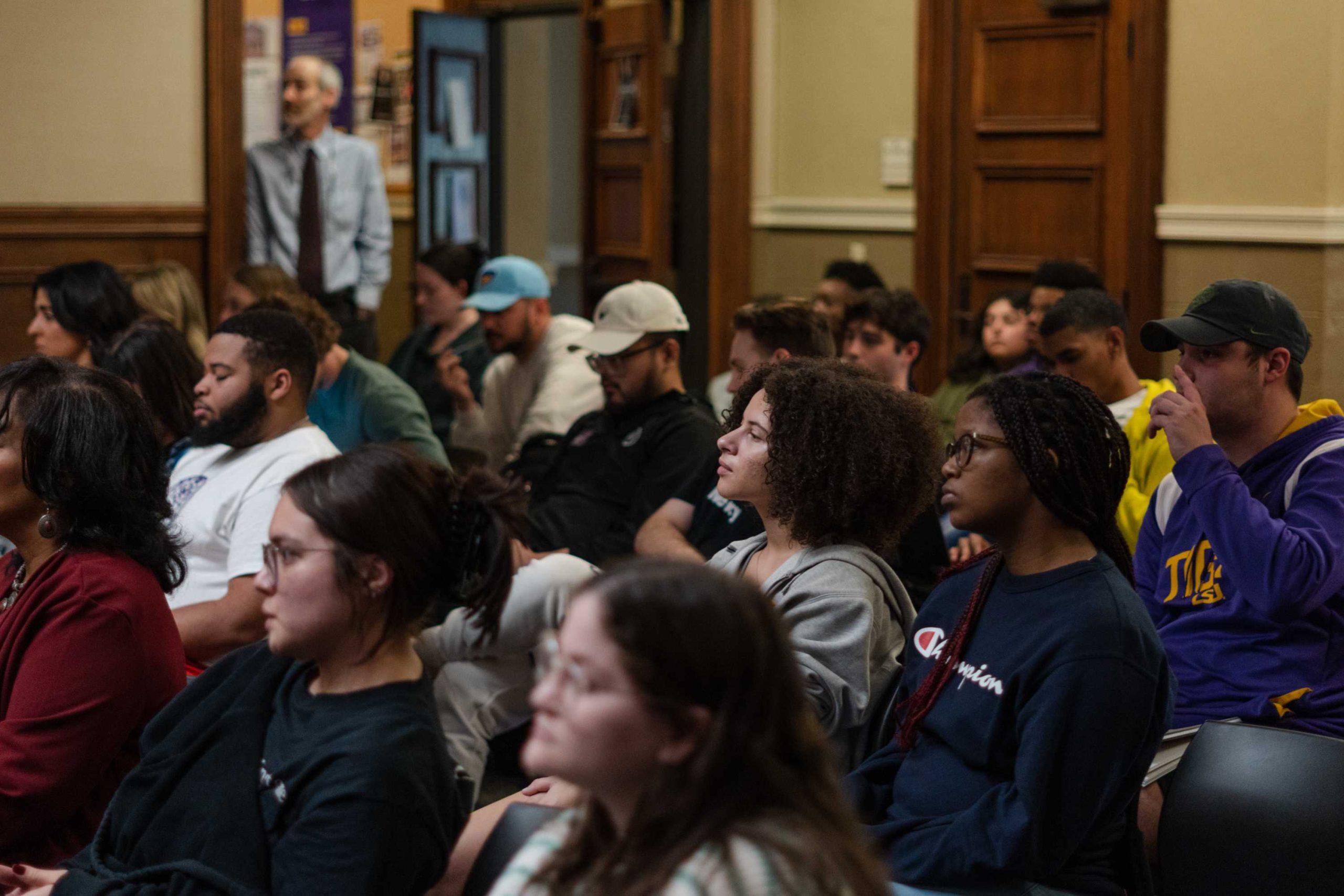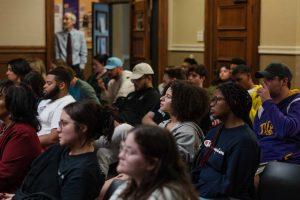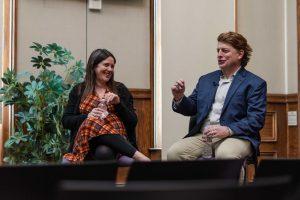Ashley Parker was enjoying sleeping in on a fall Saturday in 2019, her husband tending to their young daughter. Then her phone started vibrating nonstop.
President Donald Trump had tweeted out that Parker and her Washington Post colleague were “nasty lightweight reporters” who “shouldn’t even be allowed on the grounds of the White House because their reporting is so DISGUSTING & FAKE.”
She had earned what political rivals and many covering Trump often received–a dismissive nickname. She kept her head down and kept working.
Parker, a senior national political correspondent at the Post, and her husband, Michael C. Bender, an author and White House correspondent for The New York Times, visited the LSU Manship School of Mass Communication Thursday to share their experiences as journalists covering Trump during his attacks on the press.
They also talked to more than 100 students about how they clung to their training, talking to multiple Trump aides for even the simplest stories, despite all the fake news claims.
Funding for Parker and Bender’s visit came from a $100,000 gift to the Manship School by Charles “Chick” Moore, a retired Baton Rouge lawyer.
Moore, who is troubled by rising distrust in the media, said he wants people to understand more about how journalists work and why their work remains important.
Parker and Bender met while covering Republican presidential hopeful Jeb Bush in 2016. They’ve “almost always been competitors,” Bender said.
To beat GOP leaders like Bush and then Democrat Hillary Clinton, Trump “flipped the playbook of how you run presidential campaigns,” Bender said, by attacking his rivals right out of the gate and using the media as a foil.
Even with the attacks, Bender said, there was a “certain charm” about the former president that helped him get elected.
Though Trump leveled attacks at her, Parker said that as a real-estate developer and golf club owner, he was a natural host when he met with reporters privately. He would offer her a soda when she came to interview him and ask if she had been taken care of by the White House staff.
Trump even once left Bender alone in the Oval Office for 30 minutes.
One on one, “this was not someone who hated the press,” Bender said of Trump.
But that did not stop the public attacks, which helped damage the media’s credibility and insulate Trump from negative stories.
Parker recalled a campaign rally in 2016, when Trump called her out by name, asking if she was there.
Unlike other politicians’ rallies, Parker said Trump kept the press box in the middle of the crowd, making reporters part of the spectacle.
Trump’s aides had large name cards for the reporters that day, Parker said. She said she slowly slid hers under her laptop and looked around to pretend to search for the women everyone was jeering and hissing at.
Bender wrote a book called “‘Frankly, We Did Win This Election’: The Inside Story of How Trump Lost.” Besides describing Trump’s administration and his 2020 campaign, he shares the stories of the self-proclaimed “Front Row Joes,” the supporters who attended dozens of Trump rallies over the years and camped out for days to be at the front.
Bender said he had a different relationship with the president than his wife did. He worked at The Wall Street Journal during the Trump administration, a publication the president liked. And he said Trump would almost always give him the benefit of the doubt.
But there was another quality of his that earned him the special attention of the president.
“He really liked my hair,” said Bender, who has wavy brown locks. “He constantly complimented it in front of other reporters.”
Bender recalled taking their 8-year-old daughter with him to the White House on Take Your Kid to Work Day, where Trump greeted her warmly.
“Your dad’s a great reporter,” Trump told her. “He gets it right about 80% of the time.”
Bender said his relationship with Trump took a turn in the summer of 2021. The former president took issue with the parts of Bender’s book about Trump’s response to the Black Lives Matter protests. Trump sent out an email calling Bender a “third-rate reporter.”
Covering the Trump administration also had other unique challenges in that the president often would make news late at night or early in the morning by posting tweets, the couple explained. “Trump burned through reporters … He was capable of creating news around the clock,” Bender said.
Trump’s aides were divided into different factions, Bender said. Before Trump’s administration, he had never seen multiple people be at the same meeting and have very different understandings of what had happened inside.
While Trump was in office, this meant Bender would have to talk to every person inside to understand what happened.
Bender said he, Parker and other reporters took these extra steps to triple-check what they were hearing and be able to explain it to the public. “The only thing we have here is our credibility,” Bender said. “Once you lose that in this business, there’s nothing left.”
Washington reporters talk to LSU students about covering Trump’s rise to presidency, White House
February 10, 2023
Baton Rouge lawyer Charles “Chick” Moore is funding the speaker series at LSU to help explain what journalists do.


